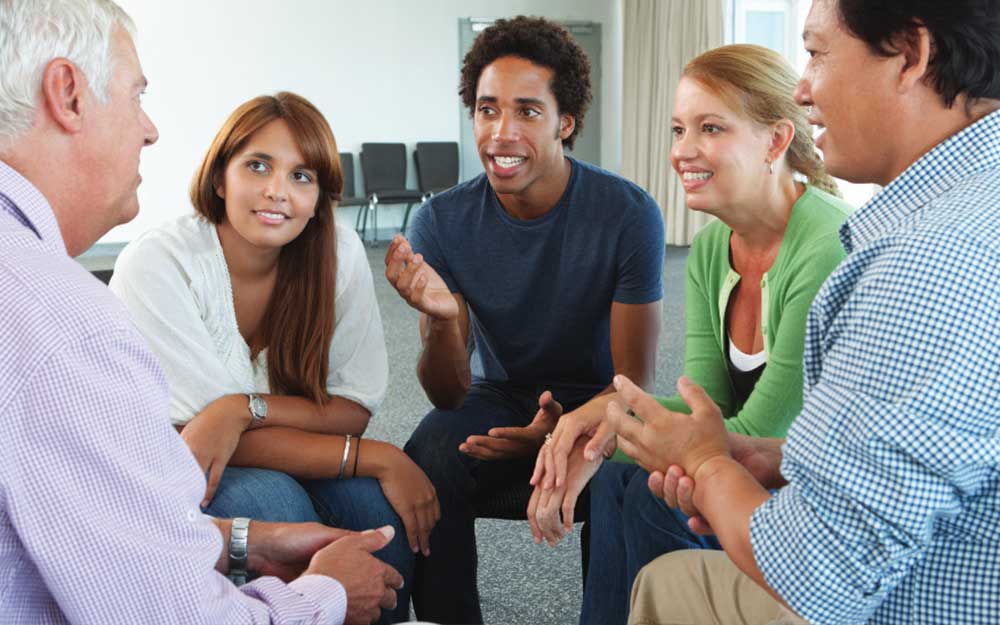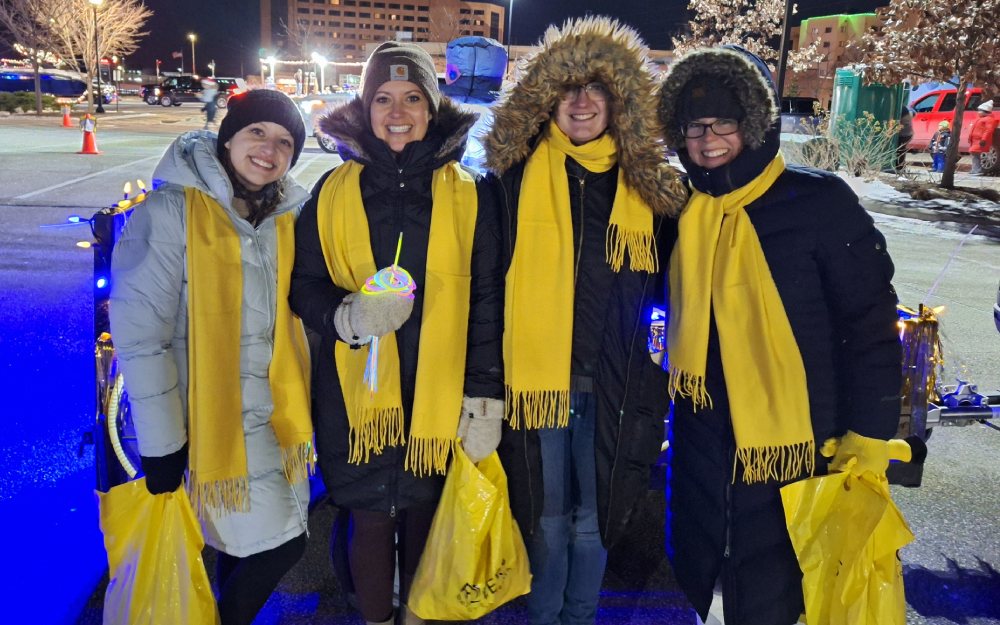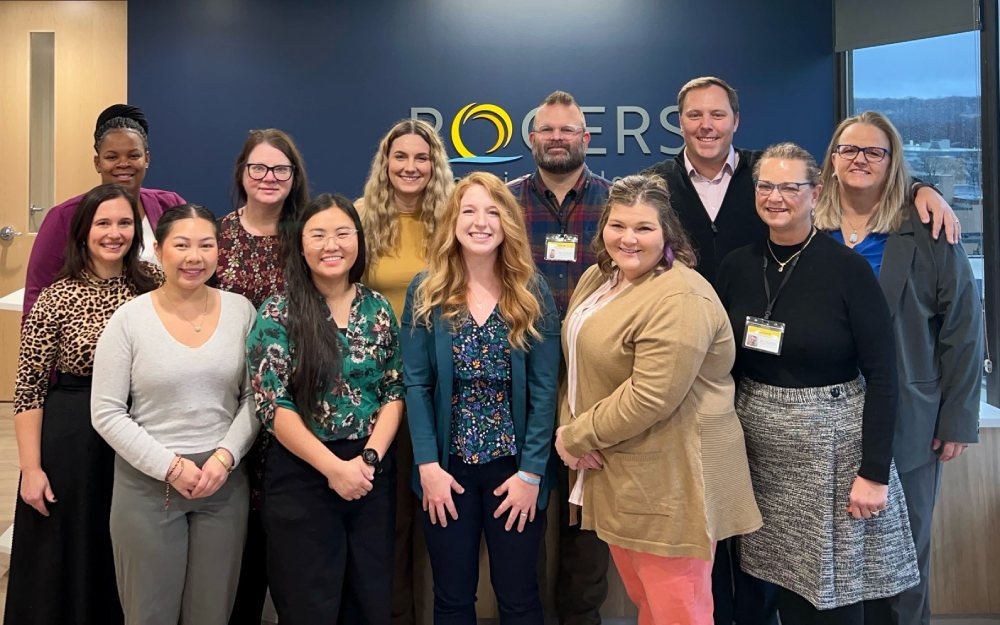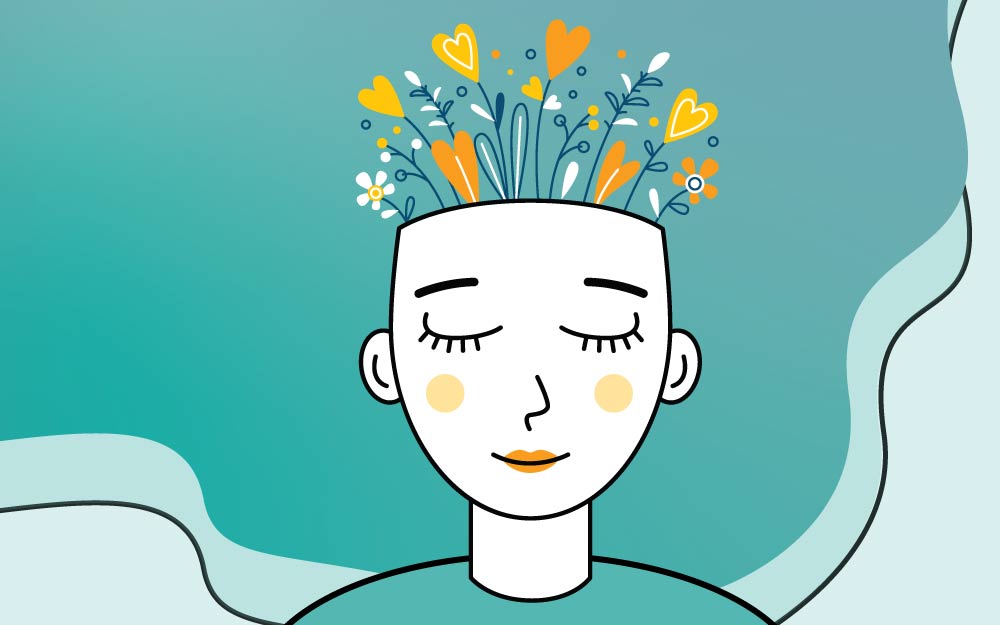
WISE and Community Learning and Engagement launch new Compassion Resilience Caregiver Resource Guide
10/17/24 01:00:pm
Anyone who has ever been in a caretaking role knows the rewards and challenges that come with it.
To provide much needed support and offer strategies for maintaining well-being, Rogers Community Learning and Engagement and WISE teams set out to make their resources more readily available. In addition to the Compassion Resilience Toolkit for Parents and Caregivers, the new Parent and Caregiver Resource Guide is now on their website as a free, fillable PDF. Training specialist, Brittney Fair spearheaded the project.
“We were talking about how we can continue to utilize the toolkit and the resources that we have to help the community, specifically those in caretaking roles,” Brittney says. “We recognize not everyone can attend the eight-session groups, so we wanted to provide the information in a way that anyone can access it, work through it at their own pace, and explore the topics that are most meaningful to them. Whether someone is supporting a child dealing with mental health challenges or an aging or ill parent, anybody who holds a role of caring for others can really utilize this.”
Emily Jonesberg, program manager for Community Learning and Engagement and WISE, adds that feedback from Rogers’ clinicians, as well as from those who work with families in the community, suggests that people are always looking for valuable resources.
“Counselors, school family liaisons, and faith leaders are interested in getting additional resources to help parents and families,” says Emily. “Going beyond the typical self-care strategies that often are provided in our society around eating well and exercise, the guide explores how to create a sense of well-being not only for yourself, but also for the person or people that you care for. Our goal was to be more holistic and all-encompassing.”
One of the main differences between the new guide and the Compassion Resilience toolkits for schools and Health and Human Services is that they explore family language and family culture.
“If we want to improve the family dynamic, we need to go to the foundation, which is values,” Brittney explains. “We help people think about what their values are and where they came from, in addition to how they live out their values in their everyday life and within the family. As a person works through the guide and identifies their values, they stay fresh in their mind as they explore their expectations and boundaries for themselves and others.”
The guide also tackles topics such as self-compassion and compassion fatigue.
“We want people to understand that compassion fatigue is normal and important to talk about,” she says. “The guide helps people identify what’s driving the fatigue and the things that are causing a person’s shoulders to be by their ears or their breathing to be off. Once the stressors are known, then a person can work on ways to minimize them. While the guide is not a cure-all, it helps to start conversations that people may not have thought about having.”
Brittney says besides starting conversations, she wants caregivers to begin focusing on themselves.
“We have different mindfulness practices and self-check-ins throughout the guide,” she shares. “We want caretakers to be proud of themselves because they’re doing so much.”
While writing the guide, Brittney shared it with several clinicians at Rogers in West Allis who lead family and individual sessions and expressed interest in using it.
“The Caregiver Resource Guide is a highly welcomed resource to the therapeutic toolkit,” says Lauren Schoenbeck, therapist. “It contains thoughtful psychoeducational materials that acknowledge hardships and empower supporters, providing a foundation for interpersonal and intergenerational wellness skills. As a clinician, I am grateful to have this guide as a supplemental tool in family support and care transition sessions given the guide’s emphasis on resilience and continuous improvement concepts.”
Cathleen Scott, who also works as a therapist in Focus Depression Recovery Adult Residential Care, agrees.
“I am very excited for the resource,” Cathleen says. “I see it as valuable information to learn about one's self, and it provides ways to support our patients and families.”
Emily says she hopes the guide will be a useful resource for Rogers’ teammates and community members, adding the team is open to feedback. Additionally, Brittney is currently working on a facilitator guide, expected to be available before the end of the year.





